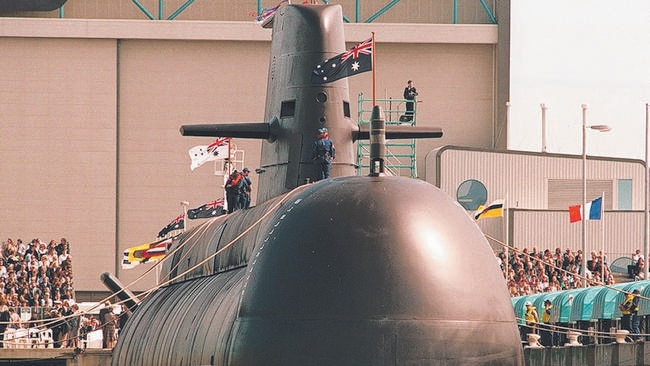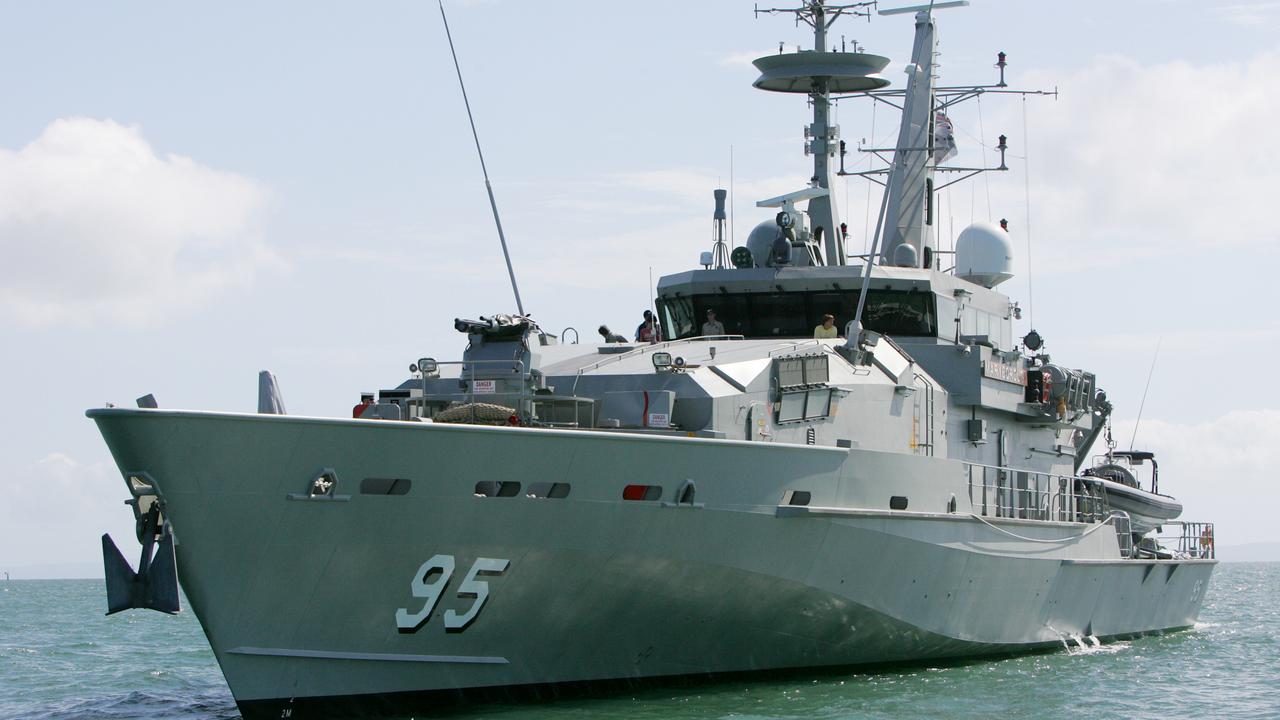US eyes strategic benefits from Japan submarines deal
The US believes Australia would benefit if it were to buy subs from Japan, a former national security adviser reveals.

The US believes Australia would benefit strategically and militarily if it were to buy submarines from Japan, Tony Abbott’s former national security adviser has revealed.
Andrew Shearer has broken his silence on Washington’s attitude to the future submarine project, saying the US believes Japanese submarines would offer a superior capability for the Australian navy and long-term strategic benefits across the region.
His comments will alarm the other two bidders for the submarine contract, Germany and France, and will cause unease within the Obama administration, which has always claimed publicly that the US was a neutral player in the debate.
In an article this week for The National Interest, Mr Shearer, who lost his job as the prime minister’s national security adviser when Malcolm Turnbull deposed Mr Abbott in September, suggests US officials privately want Australia to choose Japan as the winning bidder.
“Appropriately, the (Obama) administration has been careful not to take sides in the intense competition among France, Germany and Japan to partner with Australia in the development of the new submarine,” Mr Shearer wrote. “But senior US officials and military officers are in no doubt both as to the superior capability of the Japanese Soryu-class (submarines) and to the long-term strategic benefits to the US and the region of an inter-operable fleet of Australian and Japanese conventional submarines equipped with US combat systems.”
In a clear reference to a rising China, Mr Shearer said this was particularly important “in an increasingly contested maritime environment in which undersea warfare will be critical”.
Mr Abbott initially promoted the idea of Australia buying its submarines from Japan until political pressure last year forced him to declare a three-way contest for the $15 billion-$20bn project.
Mr Shearer was widely believed to have encouraged Mr Abbott’s enthusiasm for the Japan option.
In the article — co-written by Michael Green, a former senior White House official now at the Centre for Strategic & International Studies — Mr Shearer said Japan’s move to adopt a less pacifist defence posture opened opportunities for Australia.
“The relaxation of constraints on the Japanese military’s right to exercise collective self-defence, and on the export of Japanese defence technology and equipment, opens up significant opportunities to strengthen trilateral security co-operation and the ability of the three militaries (Japan, Australia and the US) to operate together,” he wrote.
“The most pressing of these is the replacement of Australia’s current fleet of ageing diesel electric submarines.”
For more than a year, there have been unsubstantiated rumours that the US would privately prefer Australia to choose Japan’s Soryu-class submarine because it would strengthen the trilateral alliance in the western Pacific against a rising China. However, in public, US officials and senior military figures have insisted repeatedly that they have no preference and that the decision was a matter for Australia.
Despite this, the US has a keen interest in the decision because whatever submarine Australia chooses will be installed with a US combat system, American weapons and US-developed stealth technology.
Germany’s TKMS and France’s DCNS believe they have an advantage over Japan’s bid because both countries are experienced exporters of submarines while Tokyo has never exported or built a submarine outside Japan.
The Prime Minister has visited each of the three bidding nations since taking office. His wife, Lucy, is president of the German-Australian Chamber of Commerce and was part of a delegation of senior businesspeople who travelled to Berlin in July for a meeting with Chancellor Angela Merkel.
The three competitors have delivered their final bids to Defence, which is evaluating each with a decision expected on the winner around the middle of the year before the next election.
France is proposing to build a conventional version of its 4000 tonne nuclear-powered Barracuda, while Germany is proposing to build a similar-sized Type 216 — a larger version of its smaller Type 212.
Japan is proposing a new version of its existing 4000-tonne Soryu boat, modified to give it a longer range for Australian conditions.
The future submarine project is the largest defence acquisition in Australia’s history and will seek to replace the existing Collins-class submarines that are due to be phased out from the mid-2020s.



